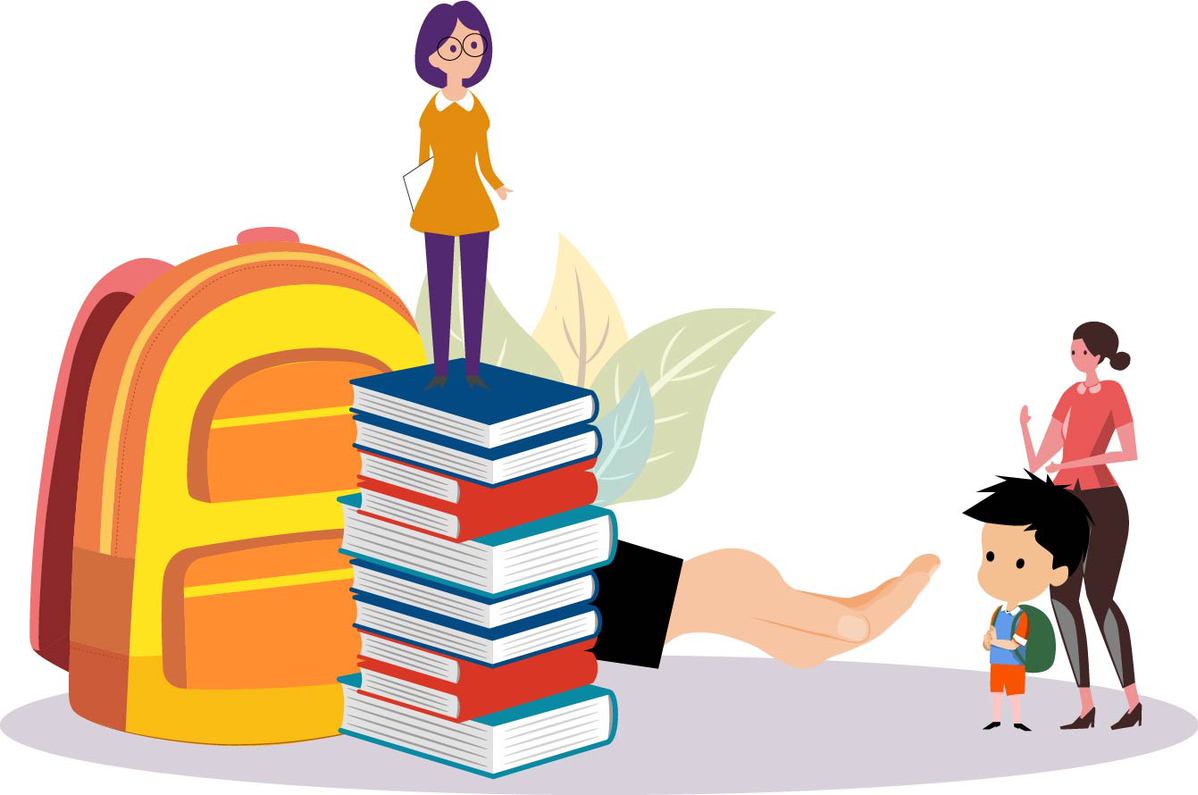Gains made in reducing school stress
Survey finds 'double reduction' drive working, but loopholes still remain


Off-campus extracurricular classes have significantly cooled down, while services on campuses have increased since China implemented a "double reduction" policy to reduce the burden on primary and secondary school students more than two years ago, according to the Ministry of Education.
The ministry said during a recent video conference with four other central government departments that despite the achievements, more efforts should be made to address problems such as variants of out-of-school classes in disciplinary subjects and inadequate supervision of training on other subjects, and to continuously improve after-class services.
Over the past two years since the double reduction campaign began, the money legally spent on training fees for disciplinary subjects saw a 40 percent decrease, according to the ministry.
In June, the National Bureau of Statistics conducted a survey on the campaign, covering 236,000 students, 272,000 parents, 4,577 principals and 79,000 teachers from all provinces. The survey showed the satisfaction rate of the campaign exceeded 80 percent.
Many training institutions have undergone transformations during the past two years. New Oriental, for instance, has shifted its focus toward livestreaming e-commerce, while Zhonggong Education expanded its business to training for recruitment exams and vocational skills.
However, education observers said some institutions are claiming to provide educational services for "art", but are actually teaching major subjects like English, math and Chinese.
Others have registered as "bookstores" but are actually running as training organizations. Moreover, there are teachers secretly offering illegal after-class training services to students.
Wang Yufen, a grandmother of two in Beijing, said the family's annual expenses on the education of her two granddaughters has actually increased.
"They are now receiving one-on-one after-class tutoring of disciplinary subjects. It costs at least 300 yuan ($42) for one class, and those taught by expert-level teachers cost up to 1,000 yuan," she said.
Targeting these issues, a national regulatory platform was launched in July last year. The platform should be comprehensively utilized to strengthen the control of covert after-class training and regularly scrutinize training materials and personnel, the ministry said.
It emphasized that China will strictly investigate and rectify any violations in training, especially during the winter vacation. Local authorities regarding education, science and technology, culture, tourism and sports are urged to enhance collaboration in inspecting extracurricular training institutions.
- China's CR450: A new era of high-speed rail at 400 km/h
- TAN SUO SAN HAO to pioneer future of deep-sea exploration
- Xi's discourses on Chinese modernization published in Japanese
- Officials summoned over alleged garbage bin food served to students
- Caring hearts help to enhance quality special education
- Xi sends condolences to South Korean acting president over plane crash




































